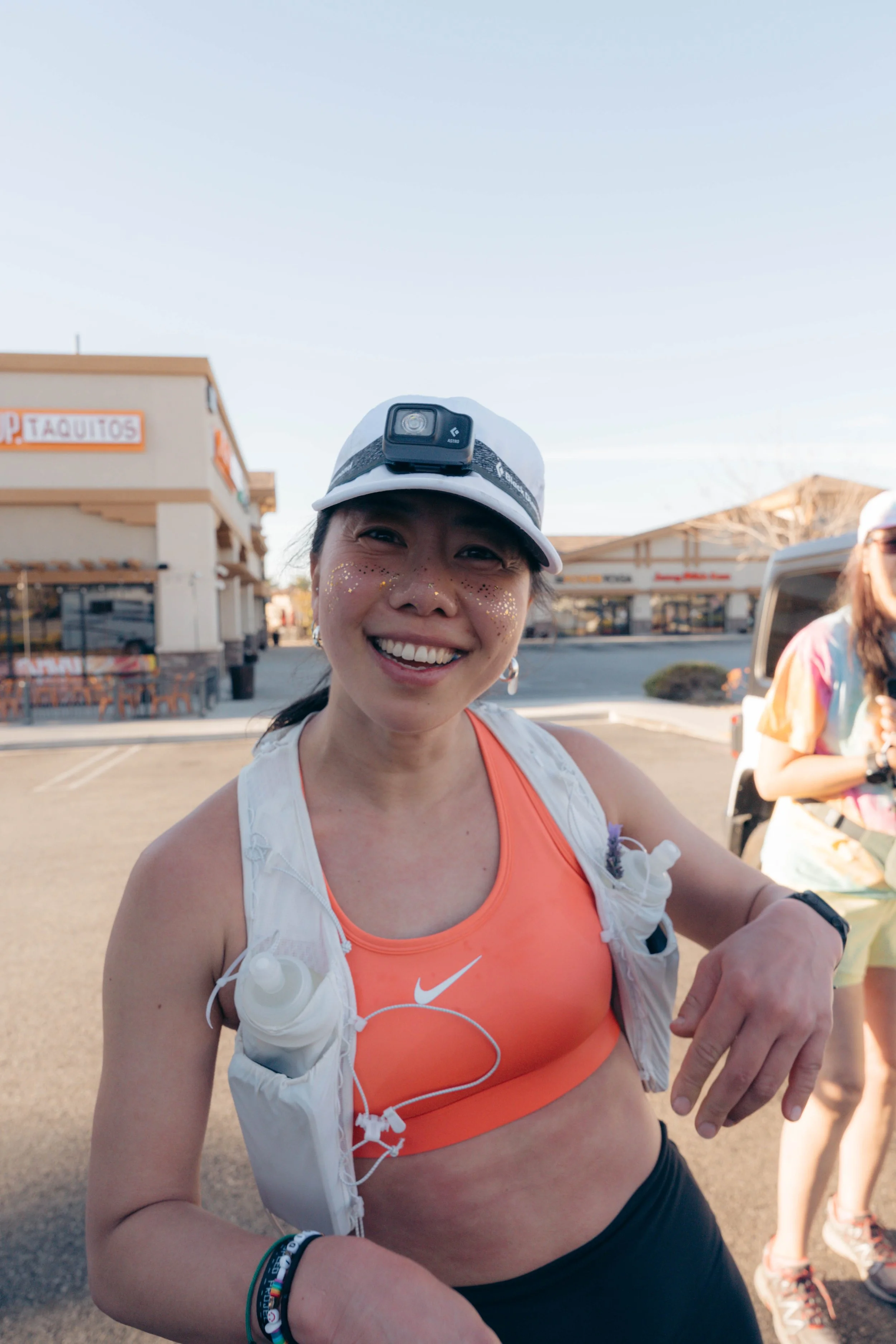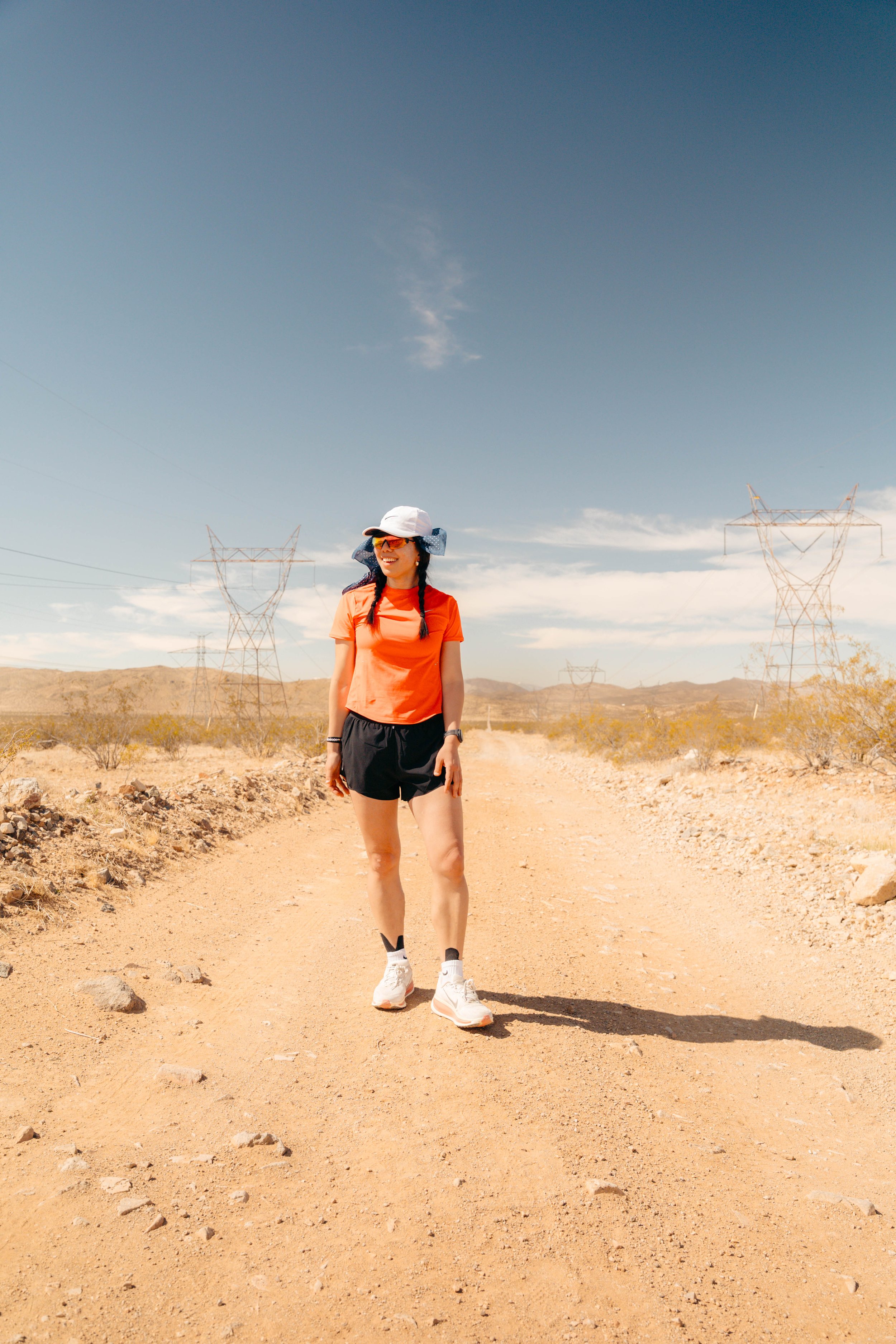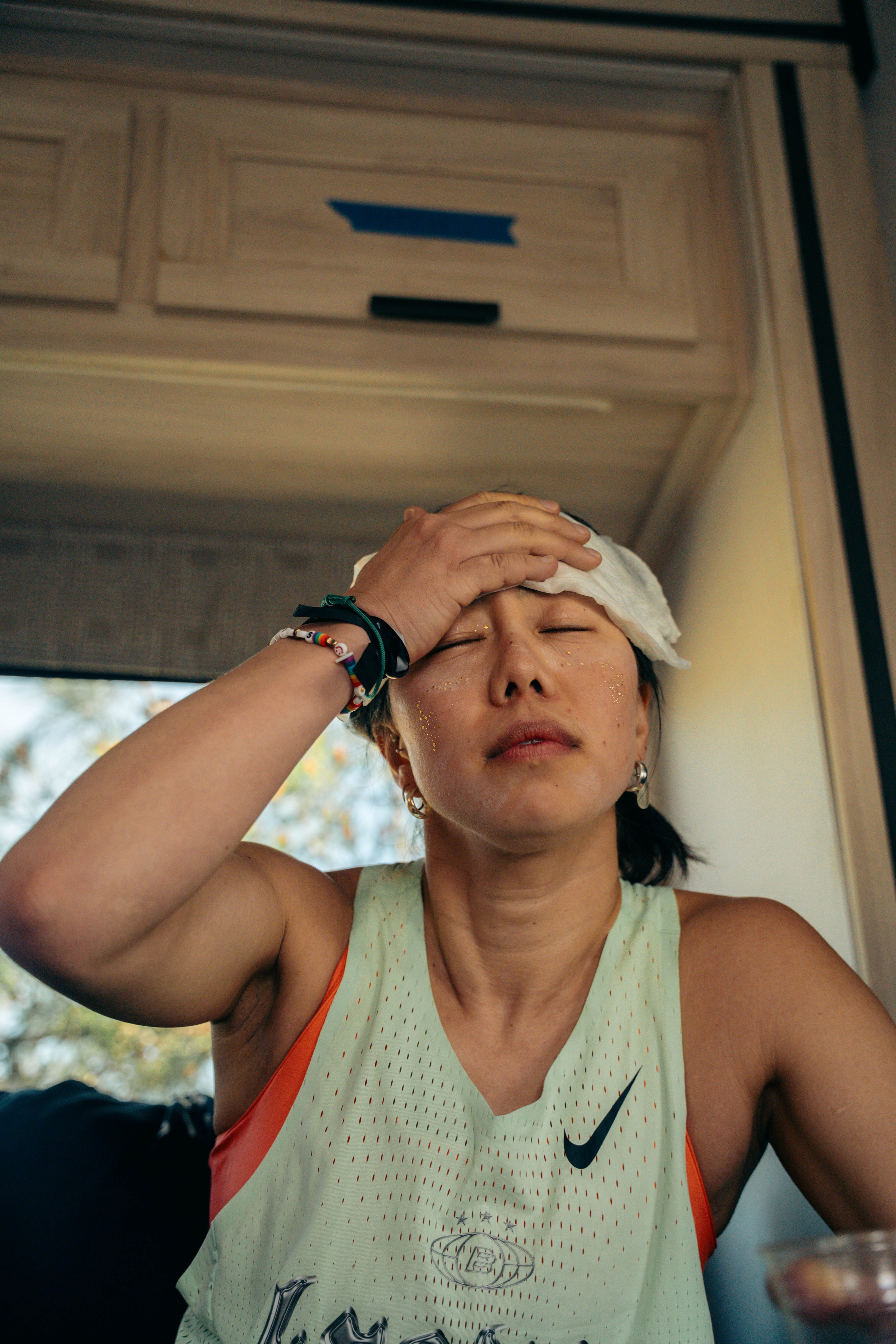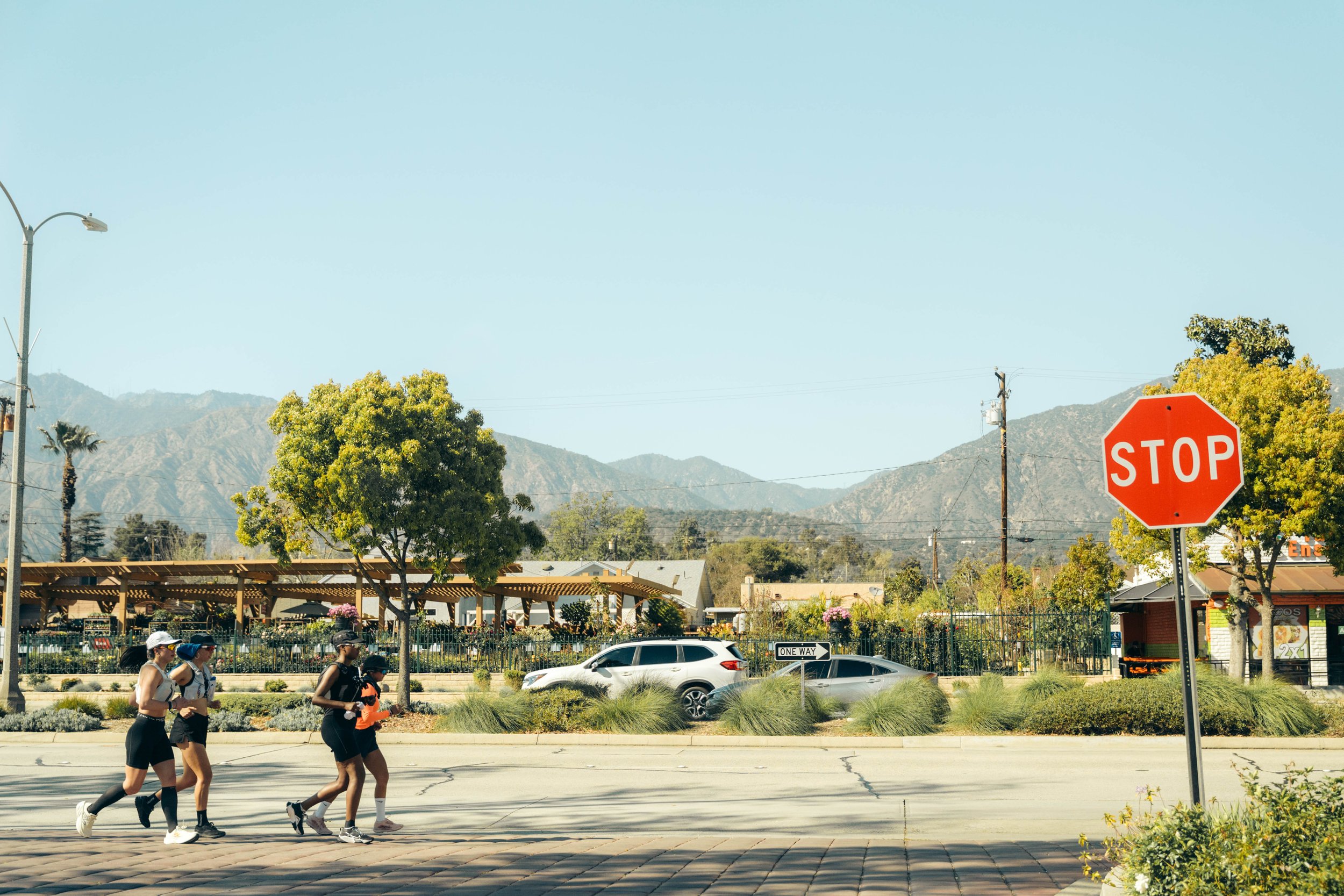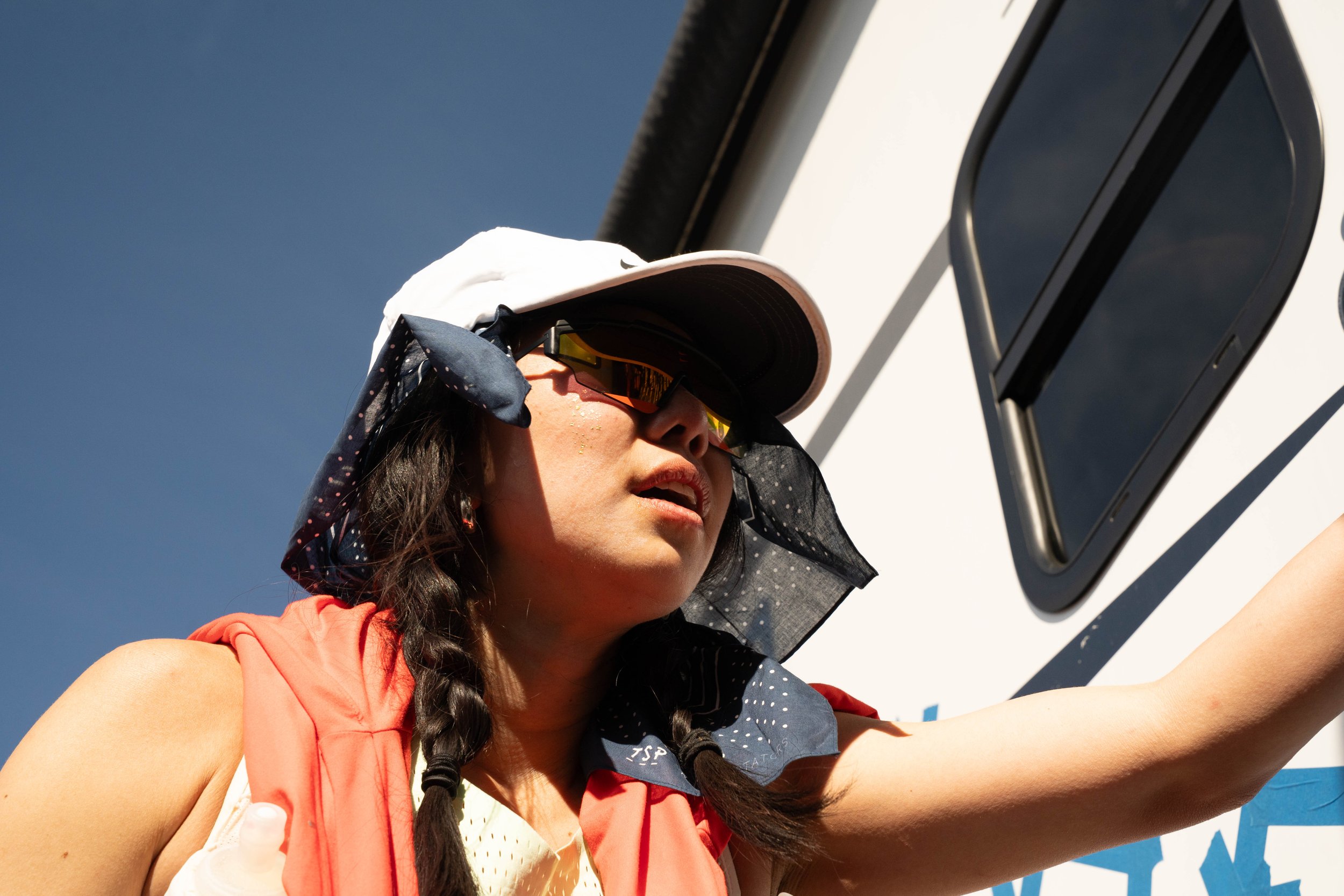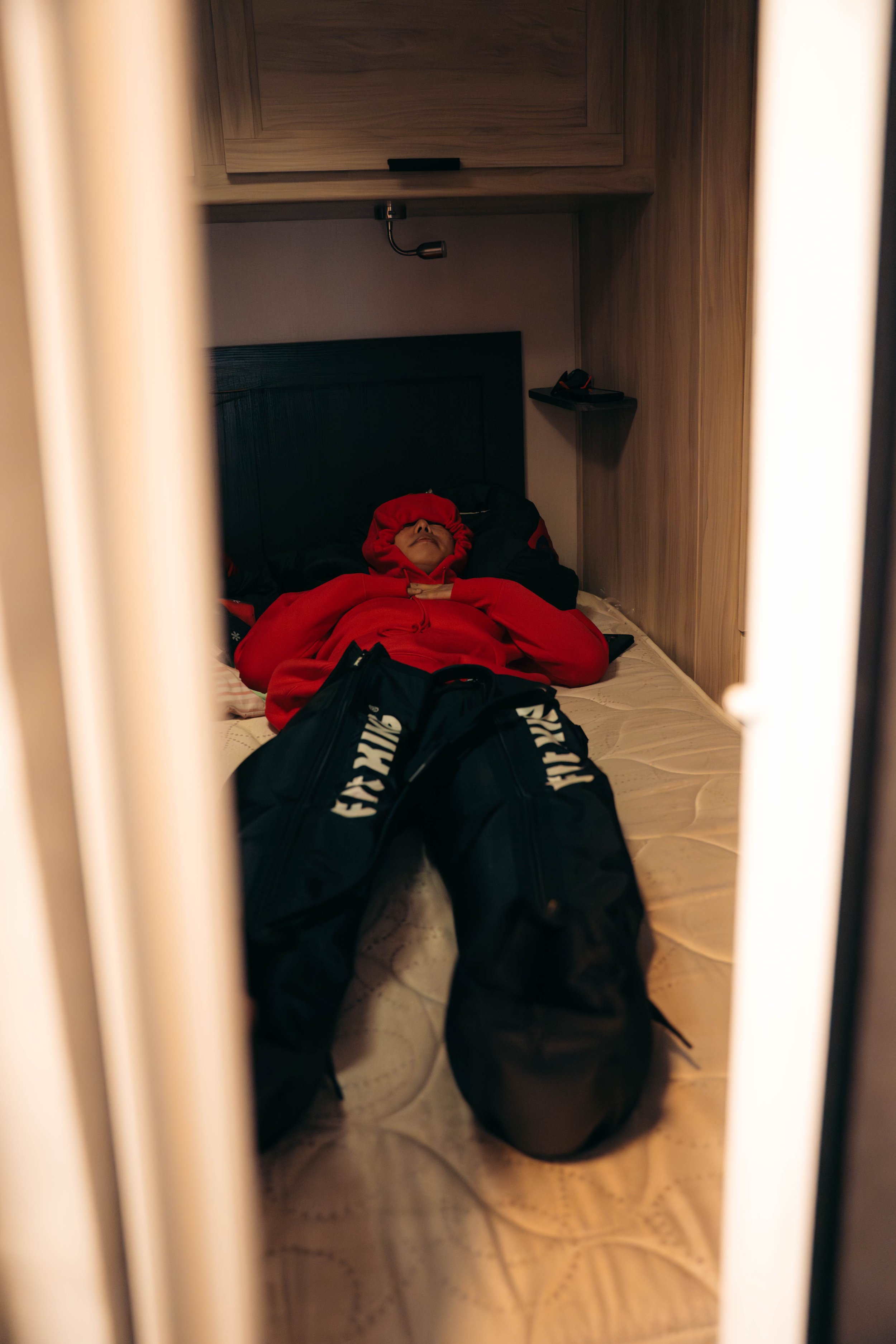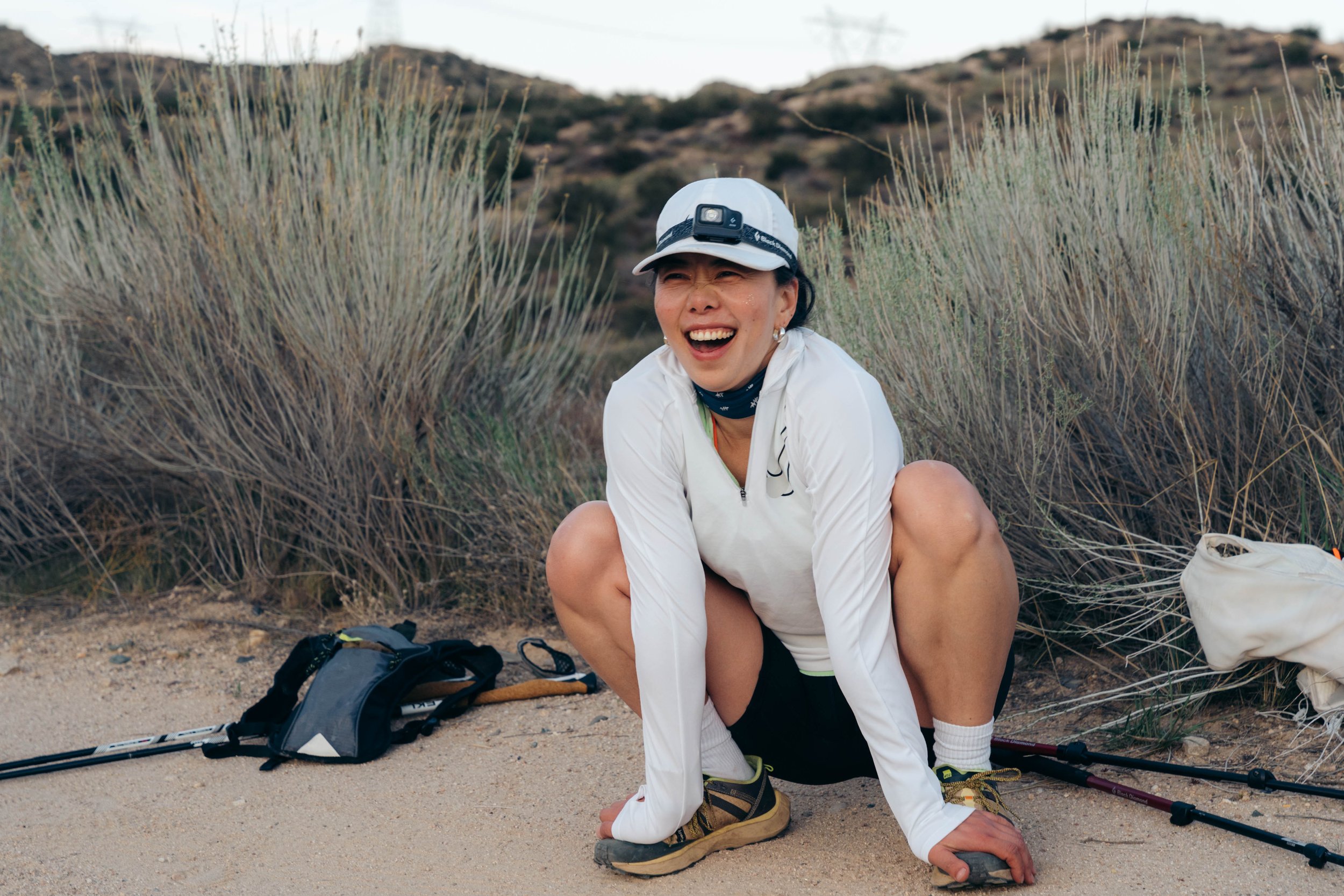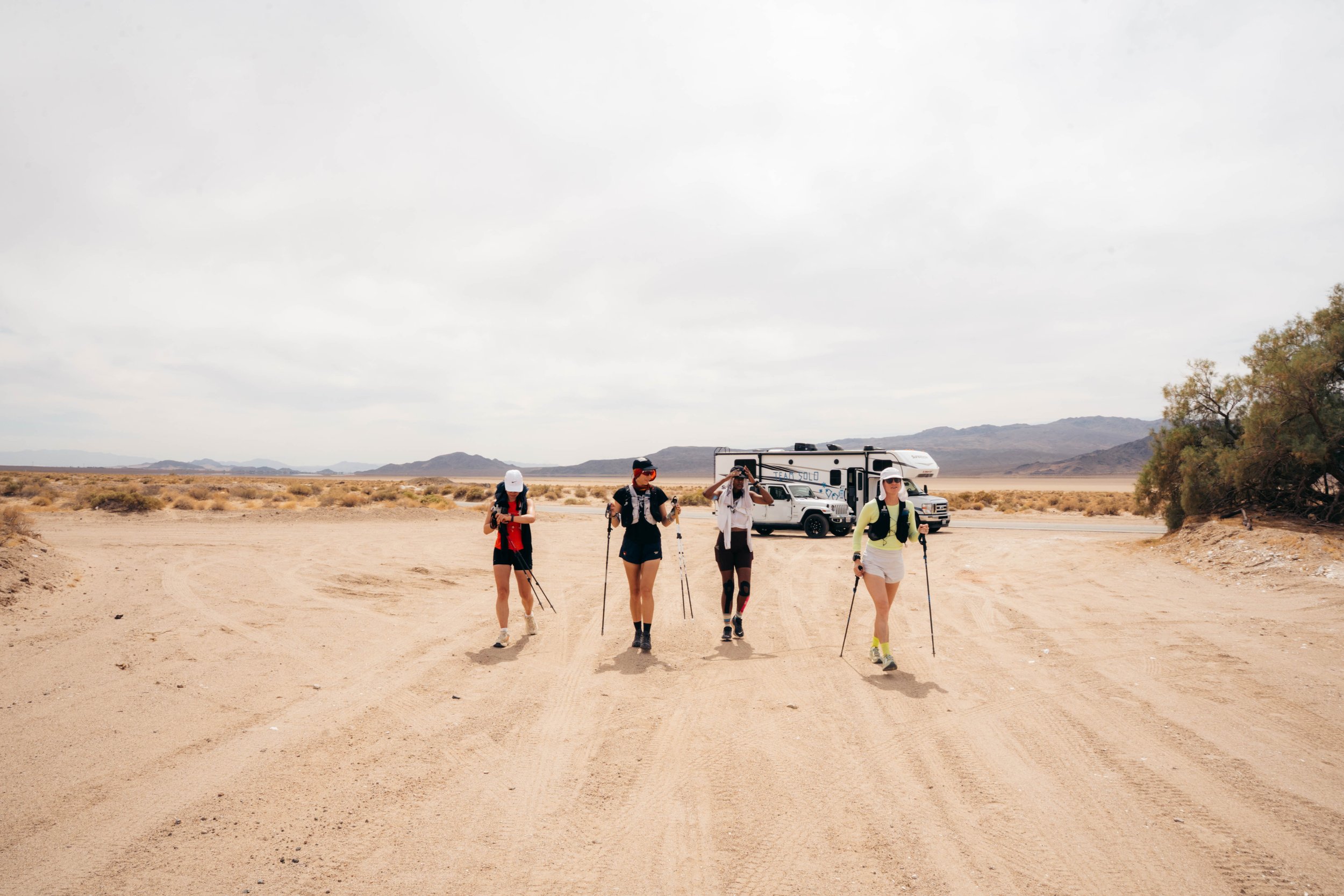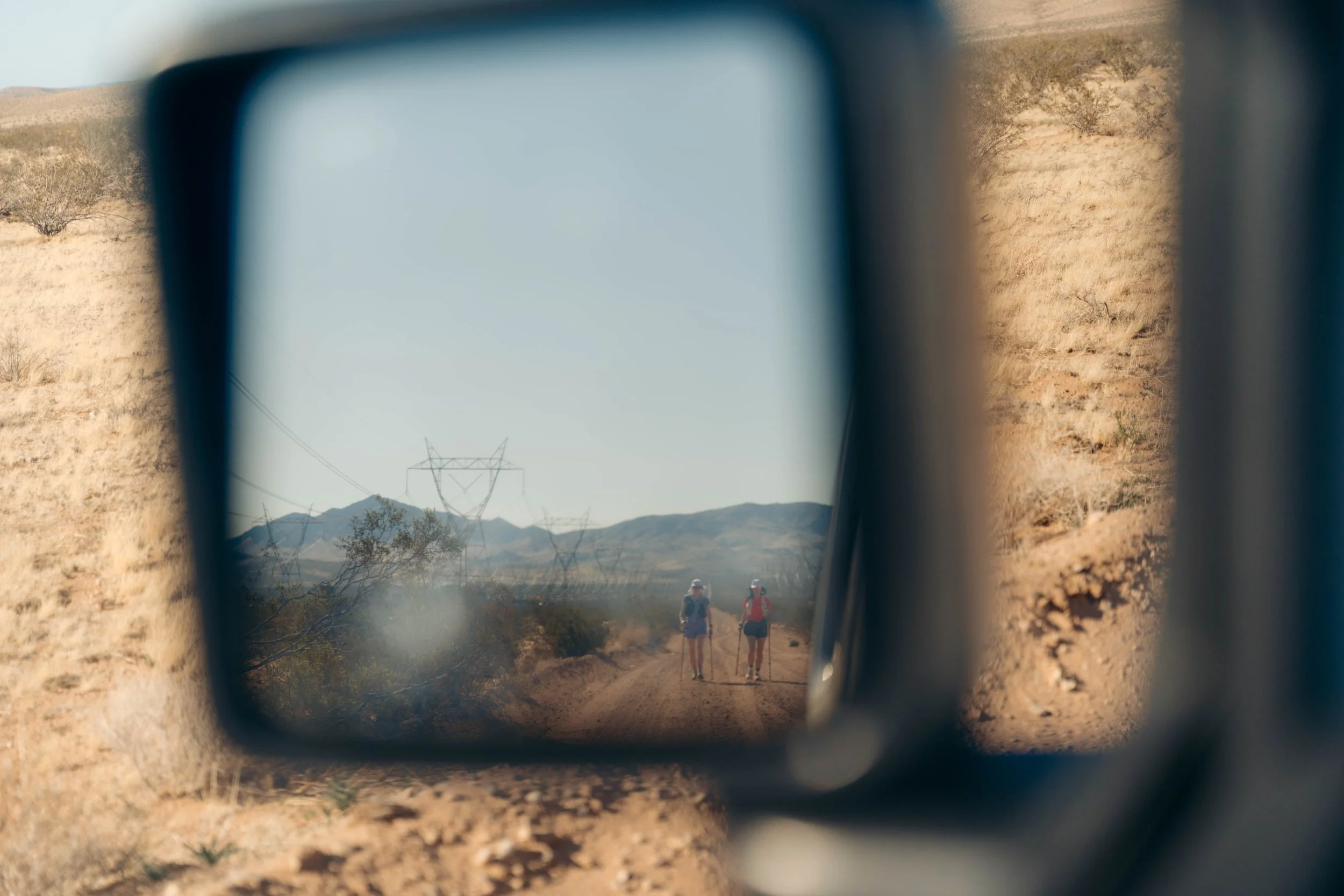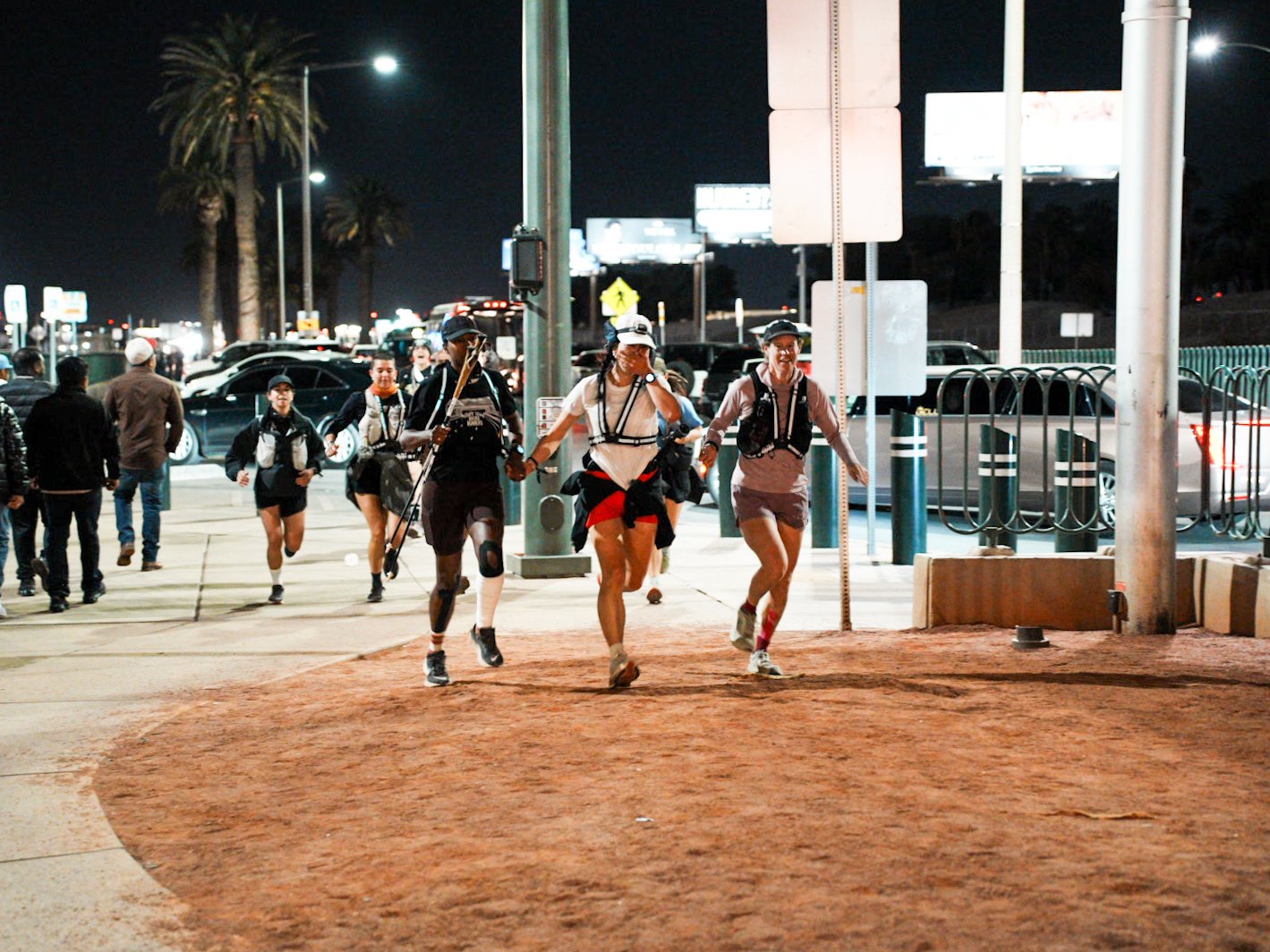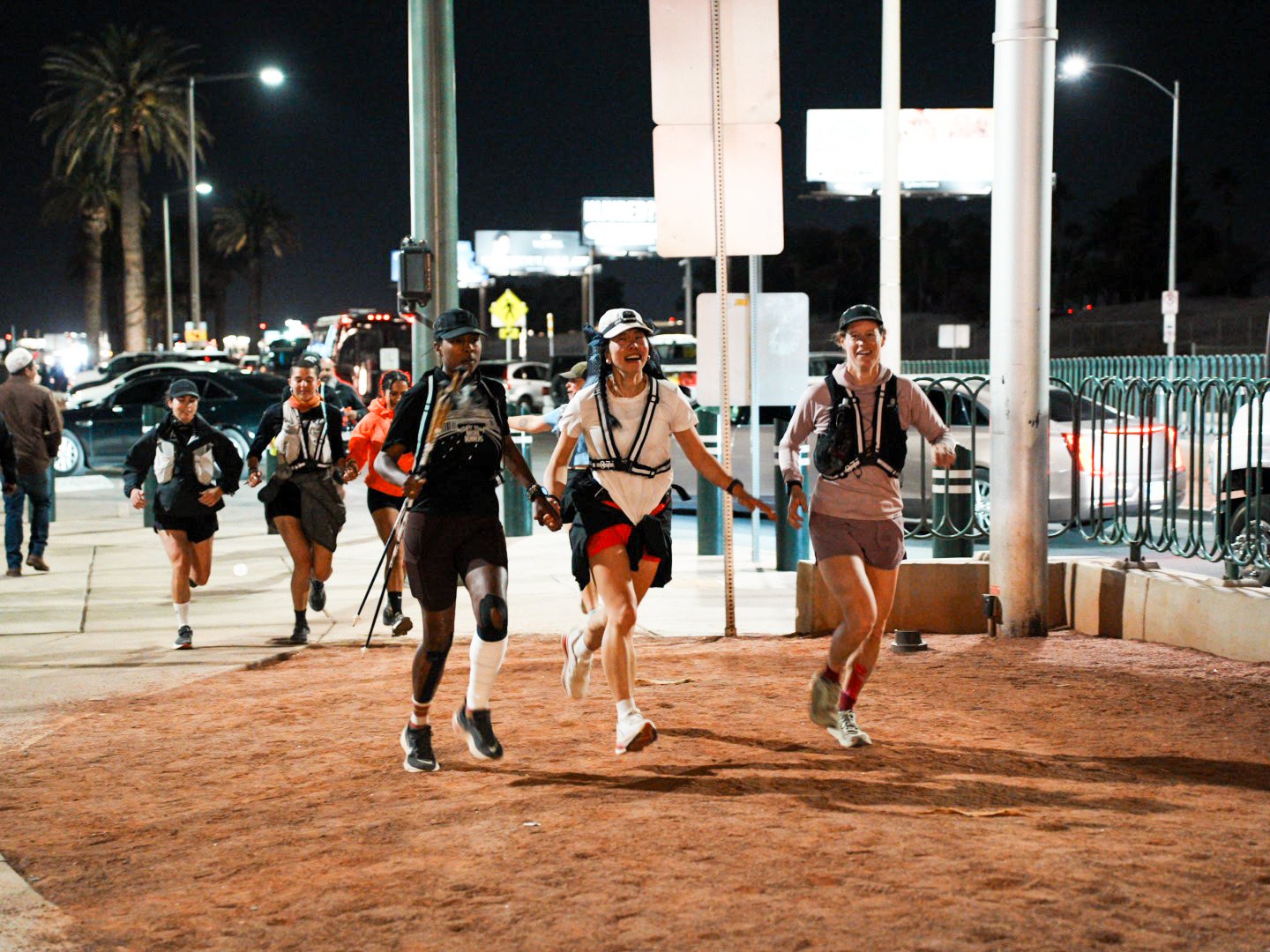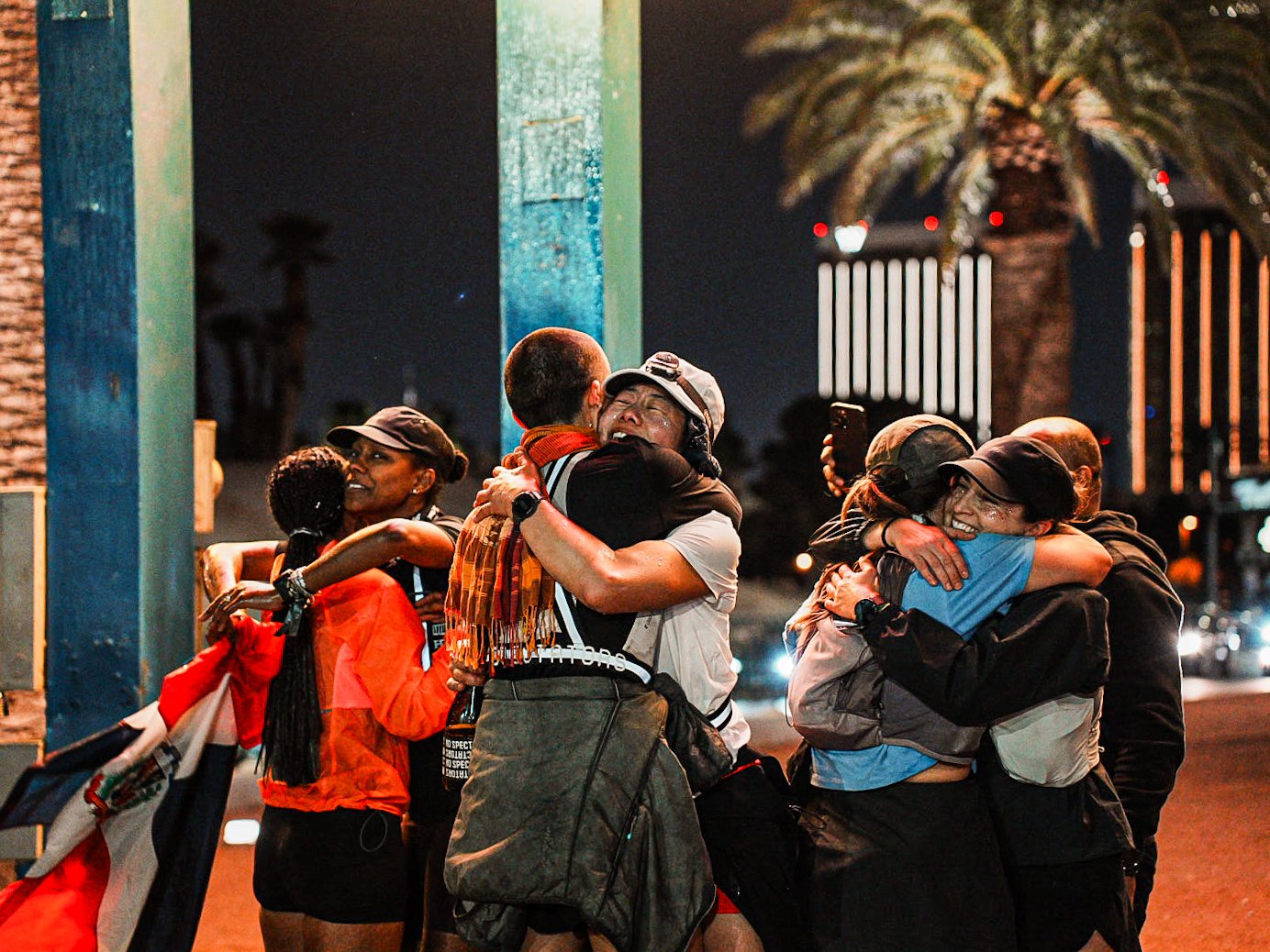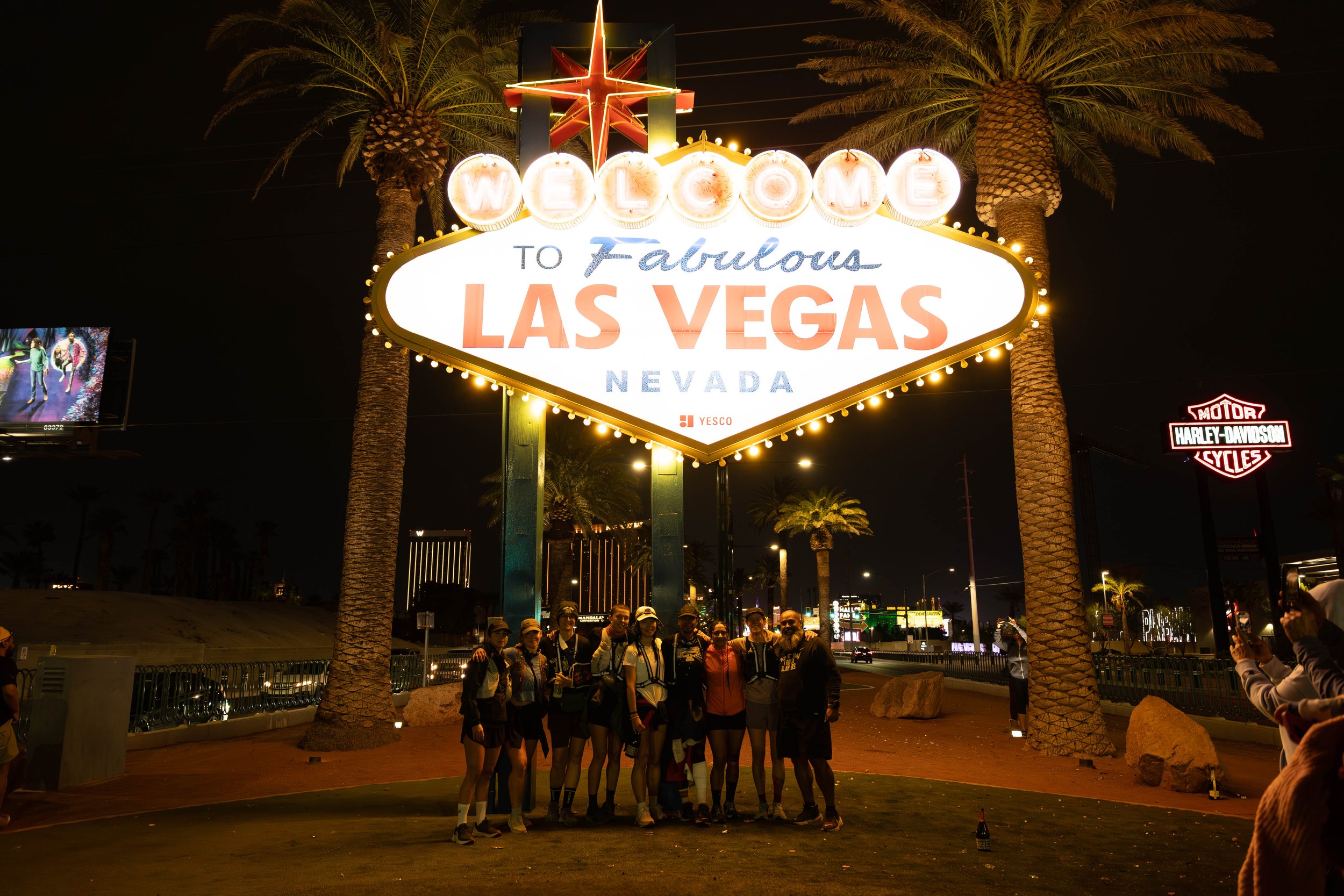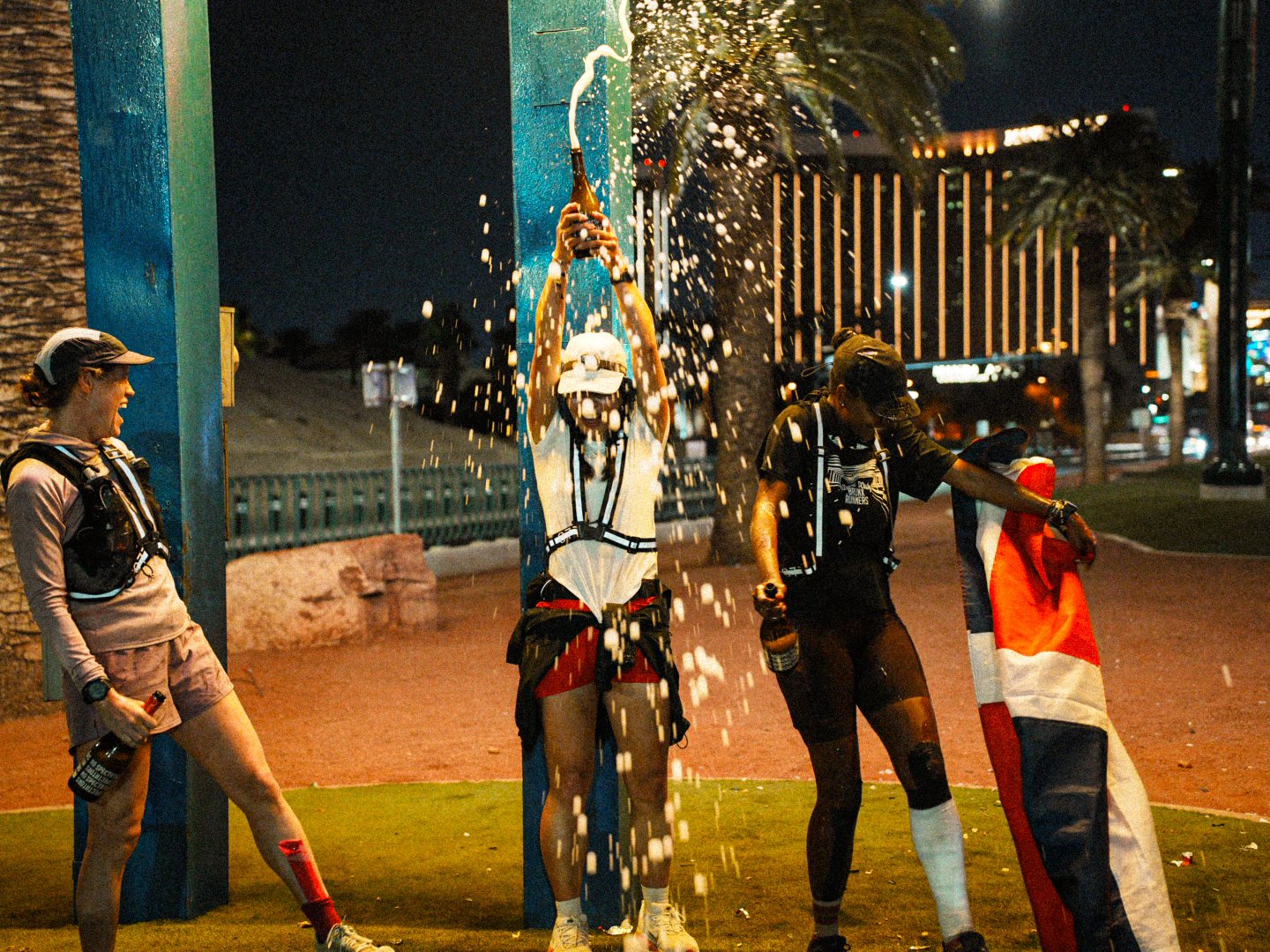Anything is possible (including a 500km run through a desert)
When South Korean-born Kiwi bloomer Juju Kim, based in Berlin, received the acceptance email for a gruelling 491-kilometre race from Los Angeles to Las Vegas along Death Valley’s edge and through the Mojave Desert, she felt scared.
She called a previous ‘Speed Project’ runner.
Her friend Yamir’s voice echoed down the phone line: “You can do it. I believe in you. Just do it.”
Juju was in.
She had six months to train.
Her running coach, however, was not impressed when Juju called her to share the news. “Her response was, ‘That’s really stupid,’” Juju laughs. “She’s very German, and she’s very realistic, and she said it wasn’t enough time to train.”
The Speed Project is an unsanctioned, invite-only race. With no route, no rules, no website, and no spectators, it was dreamed up by runner and raver Nils Arend in 2013. Despite its underground status, it draws some of the biggest sponsors in the sports world, supporting the world’s best long-distance endurance athletes.
Juju wasn’t a competitive ultramarathoner… She had run a few marathons and mostly used daily running as a tool for her mental health and overall fitness.
But Juju reassured her coach. She said she wasn’t focused on the finish line. She just wanted to get herself to the start line, feeling strong. They set up a training plan, and Juju was off.
Train, recover, rest, repeat.
“In many ways, it was lonely, but this race was a journey where I wanted to really meet myself… To prove to myself that I could do it,” she says.
The first two months of training for Juju were all about the mental. “You start facing all the voices, all the doubt, all the shit that's inside of you, because you realise, if I’m gonna run this distance, there’s no hiding from that,” she says.
“I had to accept the fact I was doing it and tune out all the other noise because a lot of people have opinions about what I can do.”
Her running coach would check in with her daily, as her body adapted to the amount of calories she was consuming for energy, and strengthening itself with long days pounding the pavement.
Home to New Zealand for a family Christmas, the doubts, however, started to drown her when a major sponsor pulled out. She had to get herself to the States... But there were immense costs, and she couldn’t do it alone; she needed a crew.
“So, I’m having a breakdown, crying at my parents’ house, and I do this woo woo thing where I say, ‘Universe, can you just give me one sign, one sign that I should be doing this?’” Juju says.
“And I’m not even kidding, the next morning, I woke up, and I got two very clear signs.” There was a job offer on the table, and then she was invited to join ‘Team Solo.’
Ultramarathons rarely see women at the start line. But Tilly Gomperts Willis, and Malcolm Ebanks wanted to change this at the Speed Project. Their mission for this year’s race was to have at least 50% of the participants be female and/or non-binary in their Radical Equity Program.
Team Solo would be a group of women who would run the whole distance, but do it together, sharing resources and the crew. “It sounded like an adventure, like a road trip. I was in,” Juju says.
Race day
On March 24, Juju stood in darkness at the Santa Monica Pier start line. Photographers were snapping pics of the 41 runners, half of whom were women. They’d reached their equality goal, and Juju was also representing herself as one of the first Asian women to race.
“Standing there with these women was the most empowering feeling I’d ever felt in my life,” she says.
The countdown begins to the 4am start…
“And then, we’re running. We´re off.¨
By the end of day one, Juju had run the furthest she’d ever gone, around 80km. A distance she’d be running for the next five days, placing immense strain on her body.
Her team, sharing an RV, would wake up before dawn each day and set out in the cool darkness. By the time it was midday, they’d be sweat-drenched in over 30 degrees heat. They struggled with a lack of sleep.
“But throughout the whole race, I was really proud because I realised I’d trained really well and really smart.” Instead of long runs, she’d focused on cross-training and strength training. When she had run, she’d break the distances up, teaching her body to recover quickly and efficiently.
This was reflected in the race, where around each 16-kilometre leg, Team Solo would rest and fuel up. From the suburbs of LA, out into the desert, where miles of powerlines led them onwards, they moved east across America.
“In the months leading up to the race, I really struggled with a lot of doubt,” she says. “But then during the race, I was really shocked at myself because every day, I would wake up, and be running again.”
Her whole foot became a blister; in fact, her evening ritual was popping oozing blisters. She got a UTI, having to ‘pop a squat’ every few metres in the desert, an immense feat in itself to try squat after days of running. Her mouth was full of dry, crackling ulcers. Along came her bloody period.
But still. She kept running.
“I’d wake up. Get changed. I’m just crying. Popping my blisters. It’s pitch black, and I’m crying, crying, and then everything goes numb. And I’m just running, running. Then the sun is rising,” she says.
“I just felt this determination, like nothing was going to stop me.”
“I surprised myself with how strong I was, how I was able to just wake up every day and run again. Like, that really blew my mind.”
By the end of day three, Juju reached the RV with her eyes plastered wide open and mouth frozen in an O-shape, zombie-like. She’d entered the pain cave.
“It’s like this black hole,” she says. “There was nothing there. My soul was sucked out of me. I’d just arrived and I don’t think I’d ever have made it without my crew.”
The RV was a five-star service, where the Team Solo crew helped their runners rest and reset.
“They’d be doing everything, Joana, the physio massaging me, putting me in compression boots, giving me food and water. I didn’t have to do anything other than bring myself back.” They surprised their runners one evening with letters from family back home. They prepared Diet Coke and cream cheese oreo-topped bagels, whatever their runners needed.
“It was like that by the end of the day, you just don’t have anything left in you. You need help,” she says.
Juju had never experienced anything like it. “To be around a community of people who are there to make sure you get to the end, who never doubt for a moment that you can’t make it.”
On the last day, Juju set out with her eyes closed. “I was so sleep deprived. I couldn’t open my eyes, I was literally sleep running. And crying. It was the first time I thought that I didn’t know if I could make it.” It was 4 am and pitch-black outside.
But physio Joana was driving next to her in the jeep, blasting music, screaming her name. “She’s probably so tired too, but she’s making sure I’m making it,” Juju says.
Another team member, Yamir, had injured her foot about 10 kilometres from the finish line. The crew took turns carrying her to the end, sprinting down the Las Vegas strip. Another crew member, Ashley, would put glitter on their faces each day. “You haven’t showered in days, but then you’re cute and ready to go. I had so many moments of this overwhelming sense of gratitude. It all felt so human, so wholesome,” Juju says.
Race photos by Ashley Stewart.
Juju had been racing the leaderboard. She could have been the first of Team Solo to finish. And she’d started the race in that frame of thinking, ‘let’s lock in and get this race done.’ During one running leg, teammate Lucy Schodell said she wanted a tattoo that said ‘Running is a team sport.’ Juju said she didn’t get it at the time.
But at the last moment, she stopped to wait. So Team Solo could finish the race as they started, together.
“This race taught me a lot about being in a team,” she says. “I’d never really been in a team before. I never grew up playing team sports. Everything I’ve done has been very alone. But I never would have been in the race if Yamir had never encouraged me. I would never have been able to make it day by day if my team weren’t there for me.”
Those last 10 kilometres were the hardest.
Team Solo was all battling with individual injuries. But they finished, holding hands. “There was no other way that I would have wanted to finish the race,” Juju says.
The Speed Challenge has made Juju want bigger.
Not bigger races, but just bigger for herself. “I took on this challenge because it felt impossible. But now I know it is possible. Now I want to share that message. That anything is possible.”
She says the doubts haven’t gone away, but she knows how to work with them.
“Whenever I have those moments, I think back to the desert. The whole race is a beautiful metaphor for many things I’ve been thinking about in my present right now. And I’m very excited because I don’t know where it’s going to take me.”
Crossing the finish line photos by @thisfishbowllife
